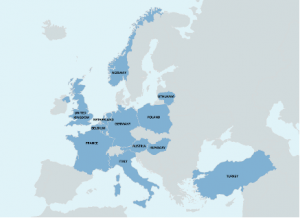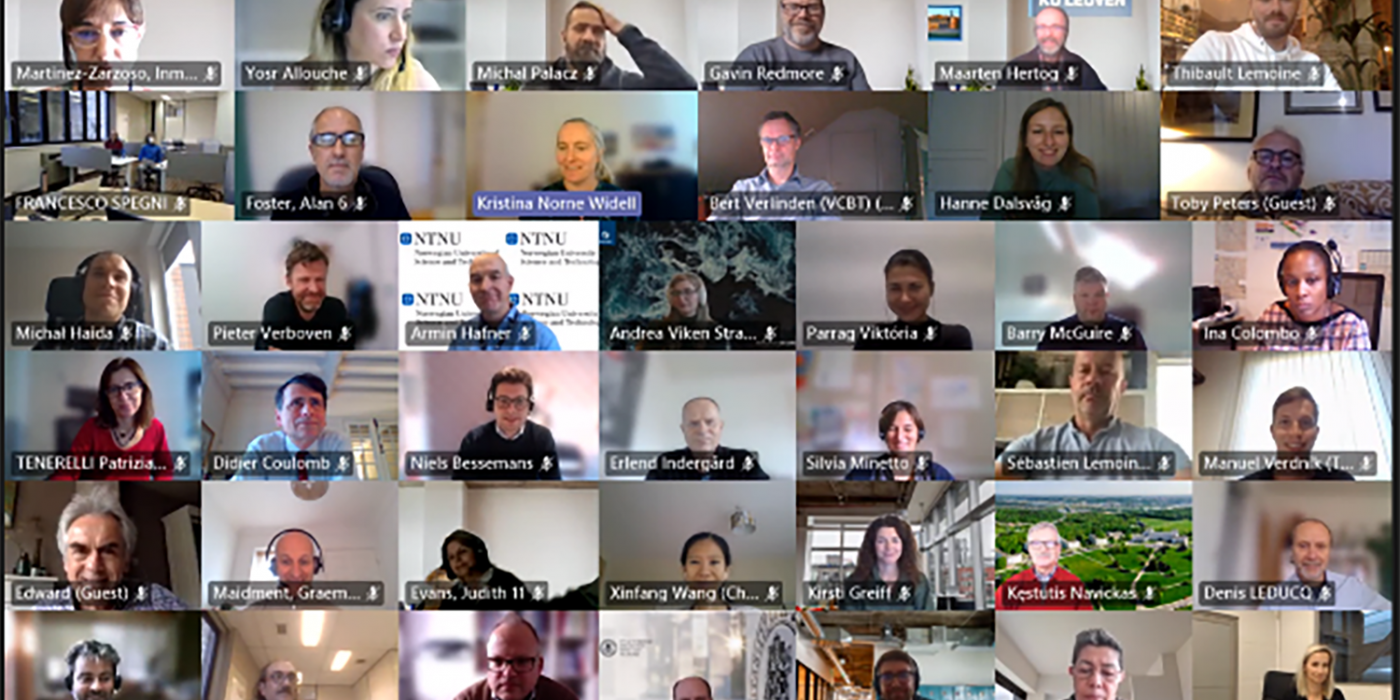ENOUGH is funded by the European Union’s Horizon 2020 research and innovation programme, and coordinated by SINTEF Ocean.
ENOUGH welcomed representatives of the 28 project partners at its official 1-day kick-off meeting, which was held online, on October 18, 2021.
The project at a glance
Food systems are globally responsible for about 20 to almost 40 % of total greenhouse gas emissions and there are several challenges that need to be solved. Over the whole food chain approximately 60% of food should be refrigerated at some point and it is estimated that approximately 70% of emissions from food are related to perishable foods. A very important challenge is to reduce the emissions. The main source of emissions is related to energy use within the food chain, but leakage of high GWP refrigerant is another relevant source.
The ENOUGH project has set objectives to address and reduce the emissions of the food sector. The main scope of the project is to support the EU farm to fork sustainable strategy by providing technical, financial, and political tools and solutions to reduce GHG emissions (by 2030) and achieve carbon neutrality (by 2050) in the food industry.
To achieve this target, the following main goals were set by the project:
- Reduce GHG-emissions by at least 50% by 2030 compared with 1990 levels.
- Identify how will we achieve carbon neutrality for food businesses by reducing energy use and increasing energy efficiency.
- Improve the overall integrated sustainability of food systems (including social/health, climate/environmental and economic aspects) whilst at the same time meeting societal goals.
- Increase awareness among policy makers, businesses, investors, entrepreneurs, institutions, stakeholders and citizens of selected innovative systemic solutions and their potential for uptake at EU scale.
The plan adopted by ENOUGH is first to provide information and identify a strong baseline on the food chain for 1990 and 2020 to predict the emissions of the food sector in 2030 and 2050. These predictions consider key factors such as the evolution of the global population, climate change, the use of renewable energy systems, consumer behaviour and technology development. Roadmaps will be then defined to describe the full food supply chain from harvest to consumption to establish new practices for each link of the food chain (processing, packaging, storage, transport etc.) and limit the GHG emissions. The project also aims to demonstrate promising technological solutions applied within 7 food sectors (meat, fish, fruit/vegetables, diary, transport, retail and domestic). The demonstrators will show different actors how to limit the emissions. Examples are the replacement of fossil fuel boilers by heat pumps in thermal processes within meat, fish and diary sectors. The project will also review EU policies and regulations, communicate with EU policy makers and provide them with guidelines to achieve the carbon neutrality of the food supply chain.
ENOUGH consortium

The project consortium includes experts from 9 EU countries, UK, Norway, and Turkey. The consortium is composed of 28 partners with extensive knowledge and proven expertise within the food industry, cold chain management and advanced refrigeration processes.The project is coordinated by SINTEF Ocean in Norway. An interactive collaboration between all partners from research institutes and universities (SO, LSBU, UoB, INRAE, KU Leuven, CNR, TU Graz, NTNU, VMU, SUT ,VCBT, UNIVPM, UGOE), industry (ENEX, ENGIE, Eletica, Campden BRI, VISD, EPTA, Arçelik, Rørosmeieriet, Optiflux, City FM, FrostX, Yeo Valley), associations (ANIA), federation (EFFoST) and organisations (IIR) will be maintained throughout the project duration to implement, demonstrate, explore and communicate new technological solutions to achieve zero carbon emissions.
Contact:
| Dr. Kristina N. Widell
Project Coordinator SINTEF Ocean
Otto Nielsens Veg 10 7052 Trondheim Tel.: +47 91893026 Email: kristina.widell@sintef.no |
Dr. Yosr Allouche
WP Communication, Dissemination and Exploitation leader International Institute of Refrigeration
177 Boulevard Malesherbes, 75017, Paris, France Tel.: +33 (0) 142 273 240 Email: y.allouche@iifiir.org Web: www.iifiir.org |










